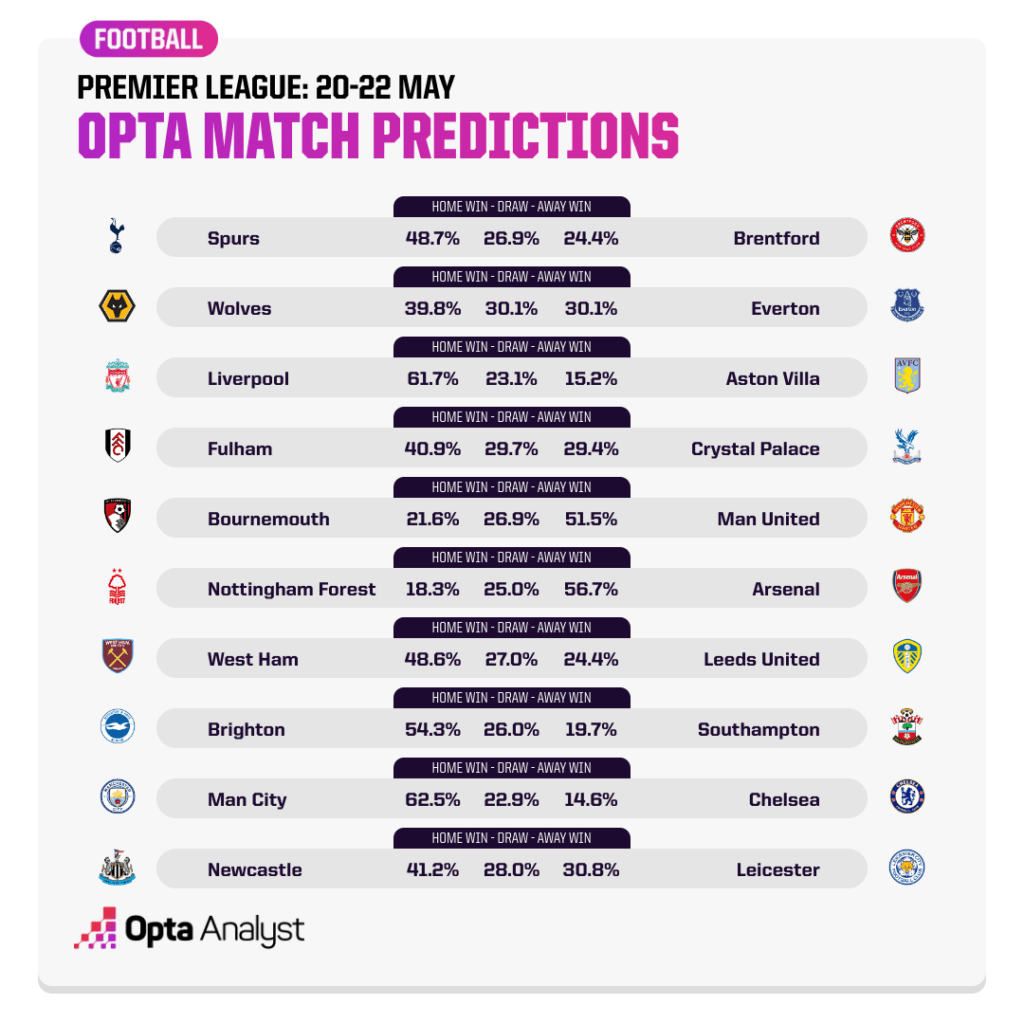FTC Probe Into OpenAI: Implications For The Future Of AI

Table of Contents
OpenAI's Practices Under Scrutiny
The Federal Trade Commission's (FTC) investigation into OpenAI encompasses a range of concerns regarding the company's practices and the potential risks associated with its powerful AI models. These concerns fall broadly into three key areas: data privacy, bias and discrimination, and the spread of misinformation.
Data Privacy Concerns
OpenAI's large language models (LLMs) are trained on massive datasets, raising significant data privacy concerns. The sheer volume of data used, and the potential inclusion of personally identifiable information (PII), has led to concerns about violations of user privacy and data protection regulations.
- Examples of data privacy concerns: The use of scraped data from the internet, including potentially copyrighted material and private communications; lack of transparency regarding data sources and usage; and the difficulty in obtaining consent for data use.
- Potential legal ramifications: Potential violations of regulations like the General Data Protection Regulation (GDPR) in Europe and the California Consumer Privacy Act (CCPA) in the US could result in substantial fines and reputational damage for OpenAI.
- Need for greater transparency: Increased transparency regarding data collection and usage practices is crucial to address these concerns and build user trust. This includes providing clear and accessible information about what data is collected, how it's used, and what security measures are in place.
Bias and Discrimination in AI Models
AI models trained on biased data can perpetuate and even amplify existing societal biases, leading to discriminatory outcomes. OpenAI's models, despite their advancements, are not immune to this issue.
- Specific examples of bias: Studies have revealed biases in OpenAI's models related to gender, race, and other protected characteristics, leading to unfair or discriminatory outputs.
- Potential societal consequences: Biased AI systems can lead to unfair loan applications, discriminatory hiring practices, and biased criminal justice outcomes, further marginalizing already vulnerable groups.
- Challenges in mitigating bias: Identifying and mitigating bias in AI models is a complex challenge, requiring careful data curation, algorithm design, and ongoing monitoring and evaluation.
Misinformation and the Spread of Fake Content
The ability of OpenAI's models to generate human-quality text raises concerns about the potential for misuse in creating and disseminating misinformation. The creation of convincing deepfakes and AI-generated propaganda poses a significant threat.
- Potential for AI-generated fake news: The ease with which AI can generate realistic-sounding articles, social media posts, and other forms of content makes it a powerful tool for the spread of fake news and propaganda.
- Deepfakes and their implications: AI-generated deepfakes can be used to manipulate public opinion, damage reputations, and even incite violence.
- Need for robust safeguards: Developing robust safeguards to prevent the misuse of AI for malicious purposes is paramount. This includes developing technologies to detect AI-generated content and implementing stricter policies on the use of AI for generating misleading information.
The FTC's Investigative Powers and Potential Outcomes
The FTC's investigation into OpenAI is significant due to its broad scope and the potential consequences for the company and the broader AI industry.
Scope of the Investigation
The FTC's investigation likely encompasses a detailed examination of OpenAI's data handling practices, its efforts to mitigate bias in its models, and its role in preventing the spread of misinformation.
- Specific allegations against OpenAI: The specific allegations against OpenAI haven't been fully disclosed, but they likely center on potential violations of consumer protection laws and data privacy regulations.
- Legal basis for the FTC's investigation: The FTC's investigation is likely based on the agency's authority under various statutes, including those related to unfair or deceptive practices and data security.
- Potential penalties OpenAI faces: Potential penalties for OpenAI could include substantial fines, changes to its business practices, and even legal injunctions restricting its operations.
Potential Regulatory Changes
The FTC's findings could significantly influence future AI regulation, leading to the development of new laws and guidelines governing the development and deployment of AI systems.
- Possible regulatory changes at the federal level: The investigation might lead to increased scrutiny of AI models and the development of more stringent data privacy regulations.
- Role of international cooperation in AI regulation: International cooperation will be crucial in establishing consistent standards and regulations for AI across different jurisdictions.
- Impact on the AI industry as a whole: The outcome of the FTC's investigation will set a precedent for other AI companies, potentially leading to greater self-regulation and a more cautious approach to AI development.
Implications for the Future of AI Development and Innovation
The FTC probe into OpenAI has significant implications for the future of AI development and innovation, impacting both the research process and the overall governance of the field.
Impact on AI Research and Development
The FTC's investigation may create a "chilling effect" on AI research and development, as companies may become more hesitant to invest in potentially risky areas.
- Potential chilling effect on AI innovation: Increased regulatory scrutiny could slow down innovation, particularly in areas with high ethical risks.
- Need for ethical considerations in AI development: The probe highlights the crucial role of ethical considerations in all stages of AI development, from data collection to model deployment.
- Importance of responsible innovation: The focus should be on developing responsible and ethical AI that benefits society as a whole while minimizing potential harms.
The Future of AI Ethics and Governance
The FTC probe underscores the urgent need for a robust framework for AI ethics and governance.
- Importance of ethical guidelines: Clear and comprehensive ethical guidelines are crucial to guide AI development and deployment, ensuring alignment with societal values.
- Role of independent oversight bodies: Independent oversight bodies are needed to monitor AI systems, audit their performance, and ensure compliance with ethical guidelines and regulations.
- Need for public engagement in shaping AI policy: Meaningful public engagement is crucial to ensure that AI policy reflects the values and concerns of the broader community.
Conclusion
The FTC probe into OpenAI serves as a crucial turning point, highlighting the urgent need for responsible AI development and robust regulatory frameworks. The investigation's outcome will significantly impact data privacy, bias mitigation, and the prevention of misinformation in AI systems. It will also shape the future of AI regulation and the pace of AI innovation. Stay informed about the evolving developments in this critical area and engage in the ongoing conversation about the future of AI. For more information, refer to the official FTC website and OpenAI's public statements on the matter.

Featured Posts
-
 Apple Tv Crime Thrillers A Growing Collection Of Must See Shows
Apr 25, 2025
Apple Tv Crime Thrillers A Growing Collection Of Must See Shows
Apr 25, 2025 -
 Netflix Heartthrobs Unexpected Accent Stuns Viewers
Apr 25, 2025
Netflix Heartthrobs Unexpected Accent Stuns Viewers
Apr 25, 2025 -
 Shingles Vaccination And Dementia Risk What The Evidence Shows
Apr 25, 2025
Shingles Vaccination And Dementia Risk What The Evidence Shows
Apr 25, 2025 -
 Eurovision 2025 Betting Tips Latest Odds And Predictions
Apr 25, 2025
Eurovision 2025 Betting Tips Latest Odds And Predictions
Apr 25, 2025 -
 Mercer International Q4 2024 Financial Report Dividend Increase To 0 075
Apr 25, 2025
Mercer International Q4 2024 Financial Report Dividend Increase To 0 075
Apr 25, 2025
Latest Posts
-
 Gillian Anderson And David Duchovny Reunite At Sag Awards
Apr 30, 2025
Gillian Anderson And David Duchovny Reunite At Sag Awards
Apr 30, 2025 -
 X Failu Uzkulisiai Itampa Ir Tiesa
Apr 30, 2025
X Failu Uzkulisiai Itampa Ir Tiesa
Apr 30, 2025 -
 Ben Affleck Films Intense Shootout Scene With Gillian Anderson In New Movie
Apr 30, 2025
Ben Affleck Films Intense Shootout Scene With Gillian Anderson In New Movie
Apr 30, 2025 -
 Mathias Colomb Cree Nation Invests In Youth Fitness Boxing And Survival Training Initiative
Apr 30, 2025
Mathias Colomb Cree Nation Invests In Youth Fitness Boxing And Survival Training Initiative
Apr 30, 2025 -
 Eurovision 2024 Irishman Wins With Armenian Song
Apr 30, 2025
Eurovision 2024 Irishman Wins With Armenian Song
Apr 30, 2025
